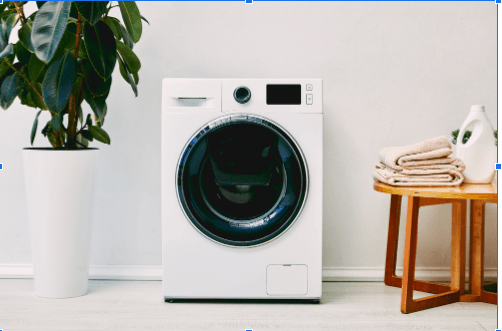When it comes to home appliances, the washing machine is one of the hardest-working machines in your house. From kids’ sports uniforms to everyday clothes, it handles heavy loads week after week. But how long do washing machines last, and what can you do to make sure yours doesn’t wear out before its time?
The average lifespan of a washing machine is typically between 10 and 13 years, depending on the brand, type, and how well it’s maintained. Some washers can keep going strong for 15 years or more, while others may give you trouble after just seven or eight years.
Understanding what impacts a washer’s longevity can help you make better decisions about maintenance, repair, and when to invest in a new washing machine.
Comparison Of Washing Machine Lifespans By Brand
Not all washing machines are created equally. The lifespan of a washing machine depends heavily on the brand and how it’s built.
- Whirlpool, LG, and Samsung models typically last around 10 to 12 years with proper maintenance.
- GE and Maytag washers tend to fall in the same range, though they may require more frequent minor repairs.
- Speed Queen is well known in Canada and the U.S. for its impressive durability; many Speed Queen models last 15 to 20 years.
If you’re deciding between newer models, checking a manufacturer’s reputation for reliability is just as important as looking at advanced features or design. While newer models often include more advanced technology and energy-efficient cycles, they may not always be built for the same extended period of service.
Speed Queen Sets The Standard Regarding Average Lifespan
When it comes to washing machine lifespan, Speed Queen is the clear leader. This brand has been around for decades and is still known for producing heavy-duty washers built with commercial-grade parts.
Unlike many other manufacturers that design appliances with more plastic parts or lightweight components, Speed Queen uses durable materials designed for long-term, regular use. Customers often report their Speed Queen machines lasting over 15 years with routine maintenance, and sometimes approach two decades of service.
Although Speed Queen washers may cost more upfront, they typically save homeowners in the long run. You’ll spend less on expensive repair bills and avoid the hassle of replacing an entire machine too soon. For Canadian households that go through multiple loads of laundry every week, investing in a washer with a longer lifespan can make a noticeable difference.
Factors That Impact The Lifespan Of A Washing Machine
The typical lifespan of a washer is influenced by more than just the brand. Here are some of the biggest factors:
The Quality Of The Materials Used
Machines with stronger drums, high-quality hoses, and durable tubs will hold up better over time. Cheaper parts may lead to leaks, wear, and costly repairs down the road.
Usage Patterns
Heavy loads of clothes, frequent washing, and running multiple cycles per day will shorten a washer’s overall lifespan. Households with large families usually see more wear on their washing machines than smaller households.
Standard Vs. High-Efficiency Models
High efficiency models use less water and detergent, and are often more energy-efficient. While they save on utility bills, they tend to have more complex parts, which can increase repair costs. Standard top-load washing machines are generally simpler and sometimes last longer, but they use more water and energy.
Extend The Life Of Your Washer With These Tips
The good news is that with proper maintenance and proper usage, you can help extend the life of your washer. Here are some expert tips:
- Avoid overloading the drum. Too much weight strains the motor, tub, and hoses.
- Use the right detergent. High efficiency models require HE detergent, while standard washers may develop excess suds if the wrong soap is used.
- Clean the rubber door seal. This is the seal found on front-load washers. Clean it to prevent mould, mildew, and unpleasant smells.
- Inspect hoses regularly. Look for cracks, bulges, or leaks and replace hoses every five years to prevent water damage.
- Leave the door open. After each cycle, it’s a good idea to leave the door ajar. This reduces moisture buildup and helps prevent mould.
- Perform routine maintenance. These can be things like running a cleaning cycle every month to keep the machine fresh.
- Address leaks immediately. Small drips or wet clothes at the end of a cycle can point to larger issues.
Call The Experts At MQ Appliance Services
Even with the best care, all washing machines will eventually need repair or replacement. If your washer is leaking, leaving clothes wet, making unusual noises, or showing signs of wear, it’s best to call in the professionals.
At Mike’s Quality Appliance Repair, we specialize in diagnosing and fixing washers of all makes and models. Our team knows how important reliable laundry appliances are to your household, and our technicians are here to help extend the life of your machine whenever possible.
For trusted, timely washing machine repair in Winnipeg, contact Mike’s Quality Appliance Repair today.

